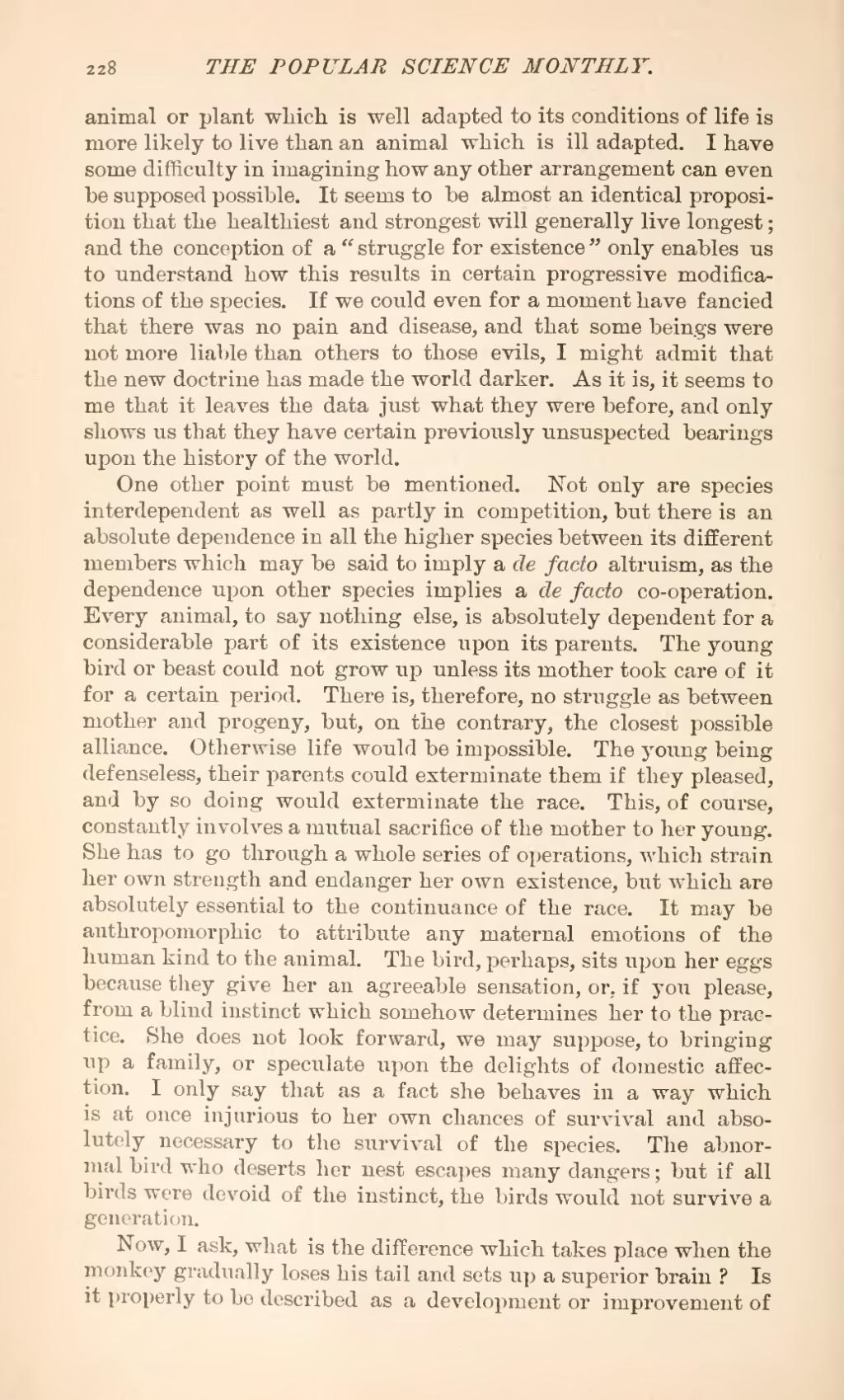animal or plant which is well adapted to its conditions of life is more likely to live than an animal which is ill adapted. I have some difficulty in imagining how any other arrangement can even be supposed possible. It seems to be almost an identical proposition that the healthiest and strongest will generally live longest; and the conception of a "struggle for existence" only enables us to understand how this results in certain progressive modifications of the species. If we could even for a moment have fancied that there was no pain and disease, and that some beings were not more liable than others to those evils, I might admit that the new doctrine has made the world darker. As it is, it seems to me that it leaves the data just what they were before, and only shows us that they have certain previously unsuspected bearings upon the history of the world.
One other point must be mentioned. Not only are species interdependent as well as partly in competition, but there is an absolute dependence in all the higher species between its different members which may be said to imply a de facto altruism, as the dependence upon other species implies a de facto co-operation. Every animal, to say nothing else, is absolutely dependent for a considerable part of its existence upon its parents. The young bird or beast could not grow up unless its mother took care of it for a certain period. There is, therefore, no struggle as between mother and progeny, but, on the contrary, the closest possible alliance. Otherwise life would be impossible. The young being defenseless, their parents could exterminate them if they pleased, and by so doing would exterminate the race. This, of course, constantly involves a mutual sacrifice of the mother to her young. She has to go through a whole series of operations, which strain her own strength and endanger her own existence, but which are absolutely essential to the continuance of the race. It may be anthropomorphic to attribute any maternal emotions of the human kind to the animal. The bird, perhaps, sits upon her eggs because they give her an agreeable sensation, or, if you please, from a blind instinct which somehow determines her to the practice. She does not look forward, we may suppose, to bringing up a family, or speculate upon the delights of domestic affection. I only say that as a fact she behaves in a way which is at once injurious to her own chances of survival and absolutely necessary to the survival of the species. The abnormal bird who deserts her nest escapes many dangers; but if all birds were devoid of the instinct, the birds would not survive a generation.
Now, I ask, what is the difference which takes place when the monkey gradually loses his tail and sets up a superior brain? Is it properly to be described as a development or improvement of

